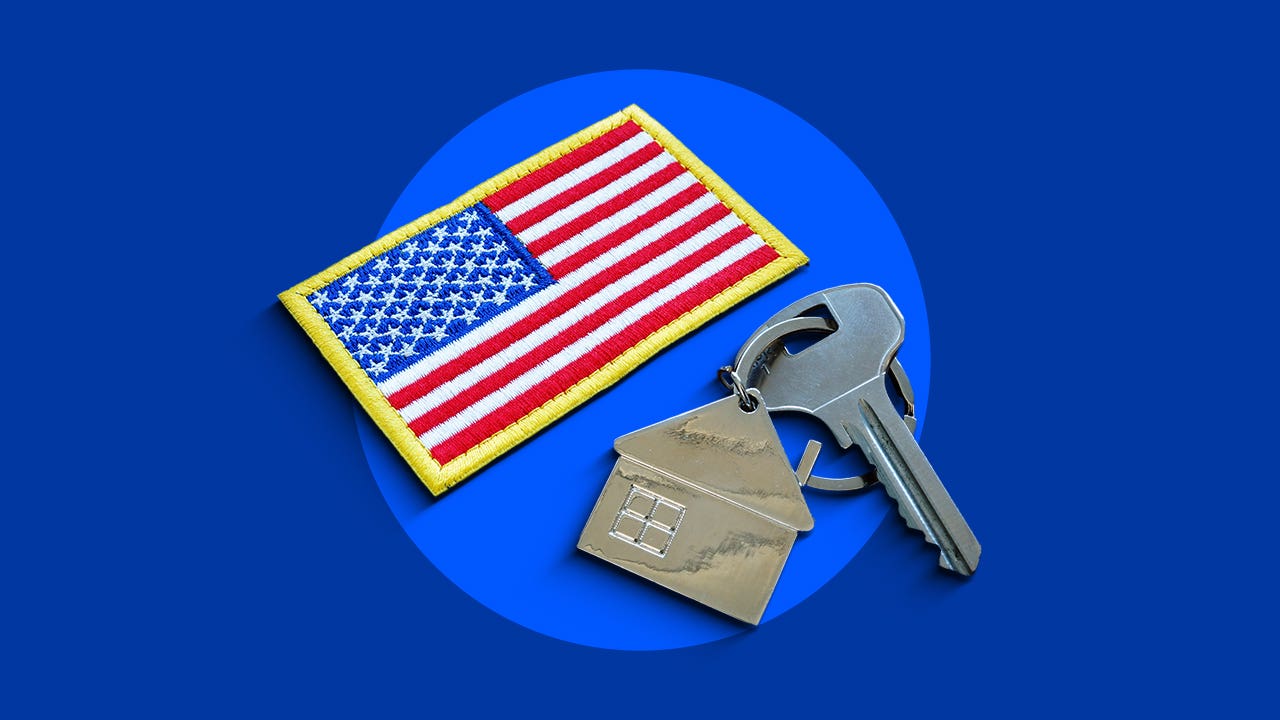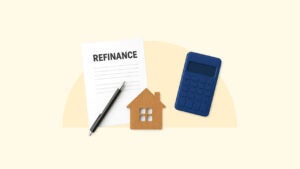VA loan down payment: When is it required and should you make one?

Key takeaways
- VA loans don’t usually require a down payment, but you may have to make one in certain circumstances.
- Making a down payment on a VA loan can help reduce your funding fee and monthly payments, and you’ll build equity in your home more quickly.
- There are drawbacks to making a down payment, such as waiting to save up the money and draining your savings.
VA home loans can be an attractive option for military service members, veterans and eligible spouses looking to buy a home. Unlike other mortgage programs, VA loans don’t typically require a down payment. However, making a down payment can reduce overall costs. Here’s how a VA loan down payment works and what to consider when deciding whether to make one.
Do VA loans require a down payment?
Not usually. One of the biggest selling points of a VA home loan, which is guaranteed by the U.S. Department of Veterans Affairs (VA), is that they generally don’t require a down payment. In contrast, buyers with conventional and FHA-backed loans need to come up with a percentage of the purchase price.
There are exceptions to this, however. If you don’t have full VA entitlement, you might be subject to VA loan limits and need to contribute a down payment. Likewise, if the sales price of a property is higher than its appraised value, you’ll have to make a down payment to cover the gap.
Assuming you meet the service requirements for a VA loan, you have full entitlement if:
- You’ve never taken out a VA home loan.
- You’ve paid a previous VA loan in full and sold the property.
- You’ve used the VA home loan benefit and your home was foreclosed or sold in a short sale, but you repaid the VA in full.
Why VA loans don’t require a down payment
The VA guarantees a portion of every VA loan, which are issued by private lenders. This federal backing mitigates the risk a lender takes in offering a no-down-payment mortgage. The guarantee is at least 25 percent — more than a typical down payment — so borrowers aren’t required to make an additional contribution.
Should you make a VA down payment even though it’s not required?
There are both benefits and drawbacks to making a down payment on a VA loan. Here’s a look at the pros and cons:
Pros of making a down payment on a VA loan
- You’ll save money on your mortgage. Because you’re putting down some of the home’s purchase price, you won’t need to borrow as large a mortgage. That means you’ll have a smaller monthly payment and pay less interest overall.
- You’ll save on the VA funding fee. If you make a down payment, you’ll pay a lower funding fee. Let’s say you’re a first-time homebuyer planning to take out a VA loan for $340,000. With no down payment — or a down payment of less than 5 percent — the funding fee would be 2.15 percent of that amount, or $7,310. If you make a down payment between 5 percent and 10 percent, that fee would shrink to 1.5 percent, or $5,100. If this isn’t your first time using the VA loan benefit, there’s an even bigger incentive to make a down payment: The VA funding fee jumps to 3.3 percent after the first use if you put down less than 5 percent.
- You’ll have more equity to start. Making a down payment translates to instant home equity, and you can tap it that much sooner to pay large expenses via a home equity loan or home equity line of credit (HELOC). If your home’s value declines, that equity cushion also protects you from owing more on your VA loan than the home’s worth.
- You could get a better interest rate and higher approval odds. If you’re making a down payment, you might find you receive better rate offers. You’ll also strengthen your application and improve your chances of getting approved for the loan.
Cons of making a down payment on a VA loan
- You might find it difficult to save. It’s not always easy to save for a down payment, especially if you have a lower income and you’re paying rent. Plus, if you hold off on getting a VA loan to build your savings, you might miss out on a lower interest rate or lower home price now compared to rates and prices in the future. You’ll also leave yourself vulnerable to rent increases.
- You could deplete your savings. Don’t be tempted to put all of your savings toward a VA loan down payment. If you do, you won’t have funds for emergencies, closing costs, home repairs, moving expenses and more.
When do VA loans require a down payment?
The scenarios in which you’ll have to make a down payment on a VA loan include:
- The home’s purchase price is higher than the appraised value. With a VA loan, you can only borrow up to the home’s appraised value. If your offer on the home ends up being higher than the appraisal, you’ll have to make up the difference.
- The VA loan amount is higher than the VA loan limit. Some VA loan borrowers face limits on how much they can borrow. Typically, these limits apply only to those who have defaulted on VA loans in the past or who already have a VA loan they’re paying off. If you’re trying to borrow more than the VA loan limit, you’ll need a down payment.
- You have partial entitlement. To get a VA loan, you must have entitlement. Most veterans and service members have full entitlement. However, if you’re still repaying a current VA loan, you’ll only have partial entitlement. If the home costs more than your entitlement amount, you’ll need a down payment to cover the rest.
FAQ
Why we ask for feedback Your feedback helps us improve our content and services. It takes less than a minute to complete.
Your responses are anonymous and will only be used for improving our website.
You may also like


When and how to refinance a personal loan





